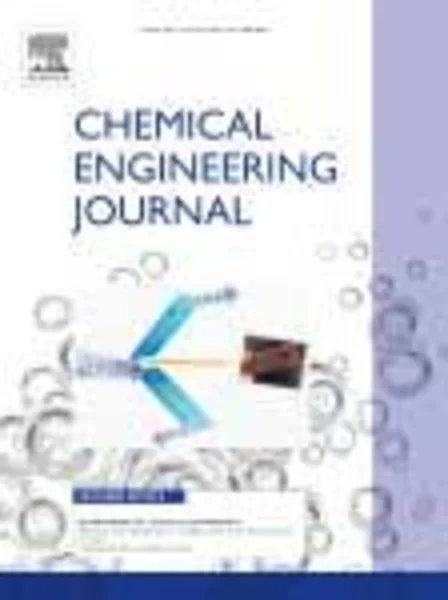-
alum-induced flocculation of preconcentrated nannochloropsis salina: residual aluminium in the biomass, fames and its effects on microalgae growth upon media recycling
جزئیات بیشتر مقاله- تاریخ ارائه: 1392/01/01
- تاریخ انتشار در تی پی بین: 1392/01/01
- تعداد بازدید: 715
- تعداد پرسش و پاسخ ها: 0
- شماره تماس دبیرخانه رویداد: -
flocculation with polyaluminium complexes has been regarded as an unsafe method of harvesting microalgae due to the potentially toxic effects of aluminium. varying concentrations of nannochloropsis salina were flocculated with different concentrations of aluminium nitrate sulphate. the level of aluminium in the microalgal biomass, lipids and fatty acid methyl esters (fames) was then determined by differential pulse adsorptive cathodic stripping voltammetry. these flocculation experiments were carried at both the laboratory and pilot scale, demonstrating efficiencies of between 79% and 99%. the highest efficiencies were observed when the concentrations of n. salinasuspensions were either 15 or 20 g l−1. despite the application of different doses of flocculant, the equilibrium content of aluminium in the filtrate averaged between 0.47 and 0.64 mg l−1 for all tested n. salina biomass concentrations. with increasing microalgae biomass concentration, an exponential decrease in aluminium content per weight of microalgal biomass was observed. after recycling the filtrate, the residual aluminium did not affect growth or photosynthetic performance of n. salina. moreover, following extraction and conversion of lipids and fames respectively, the residual aluminium decreased by 2–3 orders of magnitude. aluminium was not detected in fames from microalgae flocculated at a starting concentration of 20 g l−1n. salina biomass.
مقالات جدیدترین رویدادها
-
استفاده از تحلیل اهمیت-عملکرد در ارائه الگوی مدیریت خلاقیت سازمانی و ارائه راهکار جهت بهبود
-
بررسی تاثیر ارزش وجوه نقد مازاد بر ساختار سرمایه شرکت های پذیرفته شده در بورس اوراق بهادار تهران
-
بررسی تأثیر سطح افشای ریسک بر قرارداد بدهی شرکت های پذیرفته شده در بورس اوراق بهادار تهران
-
بررسی تأثیر رتبه بندی اعتباری مبتنی بر مدل امتیاز بازار نوظهور بر نقد شوندگی سهام با تأکید بر خصوصی سازی شرکت ها
-
تأثیر آمیخته بازاریابی پوشاک ایرانی بر تصویر ذهنی مشتری پوشاک ایرانی (هاکوپیان)
-
بررسی تحلیلی سیره عقلا به انضمام چگونگی کاشفیت از حکم آن و ثمرات
-
شبیه سازی معتبر رفتار قابهای عرضی در پلهای فولادی خمیده
-
ارزیابی عملکرد لرزه ای میراگرهای تسلیمی t-adas در قاب های فولادی بلند مرتبه تحت تحریکات حوزه نزدیک گسل
-
بهینه یابی سازه های قاب خمشی فولادی با استفاده از الگوریتم ژنتیک تعمیم یافته تحت قیود قابلیت اعتماد
-
تاثیرات سیستم اتوماسیون اداری و بایگانی الکترونیک بر عملکرد سازمان
مقالات جدیدترین ژورنال ها
-
مدیریت و بررسی افسردگی دانش آموزان دختر مقطع متوسطه دوم در دروان کرونا در شهرستان دزفول
-
مدیریت و بررسی خرد سیاسی در اندیشه ی فردوسی در ادب ایران
-
واکاوی و مدیریت توصیفی قلمدان(جاکلیدی)ضریح در موزه آستان قدس رضوی
-
بررسی تاثیر خلاقیت، دانش و انگیزه کارکنان بر پیشنهادات نوآورانه کارکنان ( مورد مطالعه: هتل های 3 و 4 ستاره استان کرمان)
-
بررسی تاثیر کیفیت سیستم های اطلاعاتی بر تصمیم گیری موفق در شرکتهای تولیدی استان اصفهان (مورد مطالعه: مدیران شرکتهای تولیدی استان اصفهان)
-
تاثیر اندوه مقایسه بر سایش اجتماعی با میانجی گری حسادت خاموش
-
بررسی نقش های بیولوژیک و اجتماعی - اقتصادی خرس قهوه ای (ursus arctos syriacus) در توده های جنگلی شمال ایران
-
بررسی ابعاد موفقیت پیاده سازی سیستم های هوش تجاری در شرکت های تولیدی ( مطالعه موردی: شرکت تولیدی سیمان )
-
بررسی و شناخت ماهیت مالیات و اقسام آن
-
the role of environmental graphic in the identification of urban public spaces




سوال خود را در مورد این مقاله مطرح نمایید :